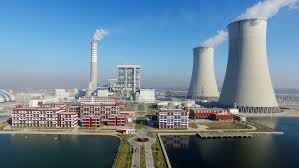ISLAMABAD: The National Electric Power Regulatory Authority (NEPRA) has said that persistent administrative and governance issues, combined with lack of planning and under investment in technology have aggravated the power sector’s difficulties.
In its State of Industry Report, 2024, NEPRA is of the view that Pakistan’s power sector is entangled in a complex web of challenges, including high tariffs, partly related to weak macro-economic conditions, inefficiencies in generation, transmission, distribution and supply of electricity marked by serious governance issues. The high price of electricity is negatively affecting the businesses, social services and the households alike.
While external factors like high prices of imported fuels, devaluation of Pak Rupee and the impact of global issues have certainly had negative impact on the cost of electricity generation in the country. There are unabated inefficiencies, particularly on the part of monopolistic entities, making electricity increasingly unaffordable and placing an unprecedented strain on the country’s economic and financial stability.
“Persistent administrative and governance issues, combined with lack of planning and under investment in technology have aggravated the power sector’s difficulties, the Regulator said adding that heavy supplemental charges—including various fees, duties, rents, surcharges, and taxes—are significantly increasing the amount on electricity bills. As a result, many consumers are seeking alternative energy sources. Those who cannot afford these escalating costs and are unable to shift to alternate sources are forced to sacrifice their quality of life by cutting back on electricity consumption.
Nevertheless, there have been notable advances in recent years. The integration of renewable energy (RE) sources, such as solar power through the net-metering regime, reflects Pakistan’s commitment to a greener future. As of June 2024, over 156,372 distributed generation solar facilities with installed capacity exceeding 2,200 MW, including K-Electric Limited (KE), have been integrated with the grid through net-metering. The ambitious goals outlined in the approved Indicative Generation Capacity Expansion Plan (IGCEP) 2022-31, targeting an additional 3,420 MW by 2031, highlight a strategic shift towards sustainable energy through RE resource. However, emerging challenges such as transformer overloading, generation losses from on-grid DG facilities during load-shedding, and uncertainty in policy decisions may undermine these efforts.
The Report further stated that the paradox of underutilized power generation capacity amid frequent load-shedding reveals deep-seated structural flaws. Outdated transmission infrastructure, high transmission and distribution losses, and issues with RLNG fuel supplies have hindered optimum plant utilization. Planning generation capacity around peak demand and induction of plants on long term contracts necessitate best possible utilization of available plants to avoid surplus capacity. However, besides inefficiencies on the part of power sector entities, the tariff policy penalizing higher consumption has also been a contributing factor for demand suppression resulting in idle capacity. The liability of capacity payments against such idle capacity increases consumer-end tariff on one hand while on the other hand it has intensified the pace of circular debt accumulation, undermining sector sustainability. Thus, a pressing need is felt to focus on increasing electricity demand, particularly for industry and the businesses, through innovative approaches, such as peak shifting, reduced tariffs for higher consumption, and facilitating participation in a competitive electricity market.
The lack of indigenization in Pakistan’s RE sector poses challenges to achieving sustainable energy goals.Despite abundant solar and wind resources, the reliance on imported technology hinders local capacity building and job creation, while increasing vulnerability to supply chain disruptions. To fully leverage its renewable potential, Pakistan must prioritize local manufacturing and expertise development, fostering innovation and sustainability in the energy sector.
This State of the Industry Report provides a comprehensive analysis of the financial, operational, and regulatory dynamics affecting Pakistan’s power sector. It highlights the need to address technical bottlenecks, economic inefficiencies, and misinformation that often inflates public scepticism toward necessary reforms. The report offers a thorough examination of the current state of the sector, outlining pressing issues and providing actionable recommendations. It aims to foster meaningful dialogue and collaborative efforts towards a more efficient, resilient, and sustainable energy future for Pakistan.















